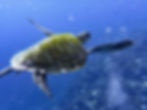AUSTRALIA AND FRANCE RESEARCH FRAMEWORKS
Bilateral scientific cooperation between our two countries is strong and is structured through long-lasting and productive researcher-to-researcher collaborations. France is currently the 6th partner of Australia for scientific co-publications of rank A and the 3rd European partner under the same criterion. In many sectors, this cooperation is essential and strategic, e.g. in the Antarctic and the IndoPacific region.

SCIENCE AND TECHNOLOGY COOPERATION BETWEEN FRANCE AND AUSTRALIA
The bilateral scientific and technology cooperation has a strong potential for growth, and has entered into a dynamic of increased structuring, in the general context of reinforcement of the bilateral relationship, where technological innovation has been identified as essential for the strategic sovereignty interests and the economic growth of the two countries.
Since 2016, the intergovernmental dialogue in science and technology has been increasing. The Joint Science and Technology Meeting in Paris in October 2016 allowed convergence towards the following strategic priorities:
-
Joint research priorities: to intensify the scientific cooperation and to foster structural research partnerships between France and Australia, in shared priority fields such as state-of-the-art engineering, digital technology, ecological and energy transition, space sciences, health, marine sciences, sustainable agriculture and biodiversity conservation.
-
Foster the construction of scientific and technological partnerships associating research institutions and industries from the two countries, and supporting initiatives like Industrie du Futur/Industry 4.0
-
Develop the bilateral cooperation in the field of incubation and maturation of start-ups stemming from public research
-
Foster the cooperation between French competitiveness clusters and their theoretical equivalent, Australian Growth Centers
-
Reinforce the bilateral cooperation in the field of student and young researcher entrepreneurship, in particular through taking advantage of all the opportunities offered by the CIFRE scheme.
A number of French research organisations are involved within this bilateral scientific cooperation. This includes the CNRS, CNES, INRAE, INSERM, Pasteur Institute, IPEV, IRSTEA, IFSTTAR and INRIA. French universities, particularly the IDEX including Paris Saclay, PSL, Sorbonne-Paris Cité are also developing strong strategic partnerships with Australian Universities.
In 2019, a delegation of 50 senior French leaders from research organisations and universities led by the French Minister of Higher Education, Research and Innovation, Ms Frédérique Vidal, visited Australia for The Joint Science and Technology Meeting and reinforced our collaboration.
In 2023, our two Minister for Foreign affairs signed a new French-Australian roadmap framing for the coming years prioritized areas for collaboration. Research and innovation are at the heart of this roadmap imbedded in the different cooperation lines, covering all kind of research sectors from climate to social sciences.
AUSTRALIAN RESEARCH LANDSCAPE
AUSTRALIAN RESEARCH LANDSCAPE
FRENCH RESEARCH LANDSCAPE

OVERVIEW OF FRENCH RESEARCH AND INNOVATION STRATEGY
French research policy is conducted by MESR (Ministry of Higher Education and Research). Research activities are carried out in higher education institutions and national research organisations (public research). Two-thirds of the research effort is carried out by companies (private research). A total of 665,600 people work in this sector.






RESEARCH IN THE PACIFIC
France and Australia have significant research interest and researcher presence in the Pacific Ocean. The below section provides an overview of the Francophone presence and research laboratories/capacities which could present opportunities for AFRAN members. It also provides information about some Australian specific project dedicated to the Pacific. A more complete overview of research institutions and priority areas across all Pacific Island Countries and Territories, including Australia, New Zealand, and regional bodies can be found in the “Directory of Research Capabilities in the Pacific”, produced by the PACE-Net Plus European Commission funded project.
RESEARCH IN THE INDIAN OCEAN
France and Australia have strong research interest in the Indian Ocean and long-lasting partners. The below section provides an overview of the Francophone presence and research laboratories/capacities which could present opportunities for AFRAN members. It also provides information about Australia's research interests in the region.












